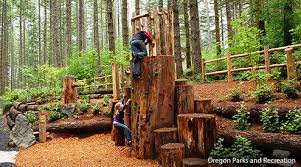
Exploring the Magic of Our Play Space Adventure Zone
The Importance of Play Spaces for Children
Play spaces are essential for the development and well-being of children. These environments provide a safe and stimulating area where children can engage in various activities that promote physical, social, and cognitive growth.
One of the key benefits of play spaces is that they encourage physical activity. Climbing, running, jumping, and playing games help children develop their motor skills and coordination. This active play also contributes to overall health and fitness, reducing the risk of childhood obesity.
Moreover, play spaces offer opportunities for social interaction. Children learn to communicate, cooperate, and negotiate with their peers while engaging in imaginative play scenarios. This helps them develop important social skills such as empathy, teamwork, and conflict resolution.
Cognitive development is another crucial aspect nurtured in play spaces. Through creative play activities like building blocks or puzzles, children enhance their problem-solving abilities, spatial awareness, and critical thinking skills. Imaginative play further stimulates their creativity and helps them express themselves.
Play spaces provide a sensory-rich environment that engages all five senses. Children explore different textures, colours, sounds, and smells through hands-on activities that stimulate their sensory perception and cognitive development.
In conclusion, play spaces are not just places for fun; they are vital learning environments that support holistic child development. By providing opportunities for physical activity, social interaction, cognitive stimulation, and sensory exploration, play spaces lay the foundation for healthy growth and lifelong learning.
Understanding Play Spaces: Definitions, Importance, and Benefits for Children
What is a physical play space?
A physical play space refers to a designated area where children can engage in active, movement-based play activities that promote physical development and well-being. These spaces are designed to encourage children to run, jump, climb, swing, and engage in other forms of physical exercise that help build strength, coordination, and gross motor skills. Physical play spaces often include equipment such as slides, climbing structures, balance beams, and swings to provide opportunities for children to challenge themselves physically while having fun. By offering a safe and stimulating environment for active play, physical play spaces contribute to children’s overall health and fitness levels while fostering a sense of adventure and exploration.
What is a play space?
A play space is a designated area specifically designed to encourage children to engage in various activities that promote their physical, social, and cognitive development. It is a safe and stimulating environment where children can explore, imagine, and interact with their surroundings through play. Play spaces come in different forms, such as playgrounds, indoor play areas, and themed play zones, each offering opportunities for children to learn, grow, and have fun. These spaces are essential for fostering creativity, social skills, physical fitness, and problem-solving abilities in children while providing a platform for them to express themselves freely and enjoy the wonders of childhood.
Why do children need space to play?
Children need space to play for a variety of important reasons. Play is not just a leisure activity; it is essential for children’s physical, social, and cognitive development. Having ample space to play allows children to move freely, explore their surroundings, and engage in active play that promotes physical fitness and coordination. Additionally, play spaces provide opportunities for social interaction, allowing children to learn important skills such as communication, cooperation, and problem-solving through play with their peers. Furthermore, having designated play areas encourages imaginative and creative play, which is crucial for fostering cognitive skills like problem-solving, critical thinking, and creativity. In essence, providing children with space to play is vital for their overall well-being and growth.


